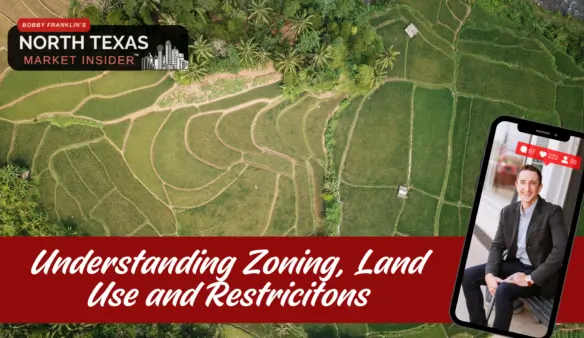By Bobby Franklin, North Texas Market Insider
Listen, I’m going to save you from the expensive mistakes I’ve watched dozens of buyers make tracking land transactions across Ellis County and the DFW market.
Buying land isn’t complicated because of the process, it’s complicated because the wrong information at the wrong time costs you a fortune.
Let’s cut through the noise.
Why North Texas? (The Strategic Reality)

Ellis County land trades at dramatically different prices based on one factor: infrastructure proximity.
Properties within 10 minutes of I-35E command substantial premiums and move fast. Properties 20+ minutes from major corridors sit longer and create negotiation leverage.
Why? Because smart buyers know the infrastructure expansion following major developments will make today’s “expensive” properties look like steals within a few years.
The Tax Advantage (And The Catch)
An agricultural exemption can reduce your property taxes by 50-90%. According to Texas Property Tax Code Chapter 23, you’re assessed on agricultural productivity value, not market value.
The catch? You need 5 of the past 7 years in legitimate agricultural use. Lose eligibility and you owe rollback taxes PLUS interest. I’ve watched buyers get hit with massive bills they never budgeted for.
Your Strategy Determines Everything
Before looking at properties, answer this: What’s your actual strategy?
- Lifestyle Buyer: Building a primary residence with space and privacy (12-36 month timeline)
- Strategic Investor: Acquiring ahead of infrastructure expansion (3-7 year hold)
- Agricultural Operator: Running legitimate farming/ranching for income and tax benefits
Your strategy determines which properties make sense, what due diligence matters most, and how to structure your purchase.
What Land Actually Costs (The Real Math)
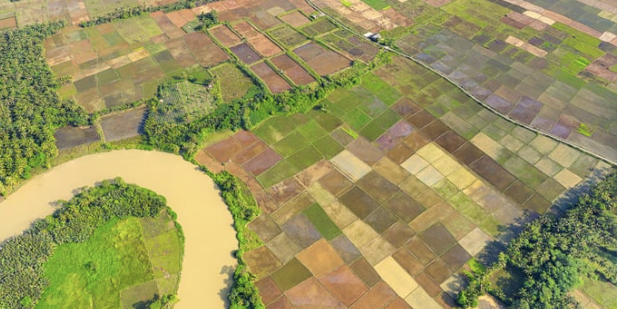
I watched a buyer pay market rate for acreage near Waxahachie. Know what they didn’t budget for?
- $22,000 to run electric from the road
- $18,000 for well drilling/$40,000 to run city water
- $15,000 for compliant septic
- $12,000 for road improvements
- $8,000 for new survey
Total unplanned costs: $75k-$125k on top of purchase price.
The Framework That Matters:
Purchase Price + Development Costs + Holding Costs = Total Investment
Compare that to similar DEVELOPED properties. If you’re within 15-20%, you’re making a smart move. Higher? You’re paying for custom development privilege, which is fine IF that’s your goal.
The Infrastructure Premium
Properties within 1 mile of existing utilities sell for 40-60% more per acre, but save buyers $30,000-$80,000 in development costs. [2]
Most agents show cheap per-acre pricing on remote properties and call it a deal. Add back infrastructure costs and you paid market rate, plus spent 18 months dealing with utility companies.
The Questions That Separate Smart Buyers from Expensive Lessons

TIER ONE: The Deal-Killers
1. Does this property have legal, deeded access to a public road?
Landlocked property is nearly worthless without recorded easement access. According to Texas General Land Office requirements, access must be minimum 60 feet wide or meet county standards.
Verbal agreements? Not legally binding. They disappear when properties change hands.
I watched a buyer purchase acreage with “understanding” from the neighbor. Neighbor sold six months later. New owner blocked access. Original buyer spent massive legal fees or sold at huge loss.
Due diligence: Verify access is recorded in the deed during option period.
2. Has the soil passed a percolation test?
Most properties need septic systems permitted by TCEQ. Soil that fails means:
- Alternative systems costing $15,000-$50,000+ (versus $5,000-$12,000 conventional)
- Possible unbuildable land
Due diligence: Make offers contingent on satisfactory perc test. Cost: $300-800. Savings: avoiding six-figure mistakes.
3. Do I own the water rights?
Texas water law is complex. Surface water (rivers, creeks, lakes) is state-owned, using it requires TCEQ permits beyond domestic/livestock use.
Groundwater follows “rule of capture” but local Groundwater Conservation Districts can regulate pumping.
And previous owners can sever and sell water rights separately.
Due diligence: Title search reveals water rights status. Research groundwater district regulations and drilling costs.
4. Who owns the mineral rights?
Texas law treats mineral rights separately from surface rights—and the mineral estate is legally DOMINANT.
According to Texas mineral rights law, someone else can own drilling rights on your property. Previous owners may have severed and retained mineral rights decades ago.
Due diligence: Title search reveals ownership. Determine if active leases exist.
TIER TWO: The Expensive Headaches
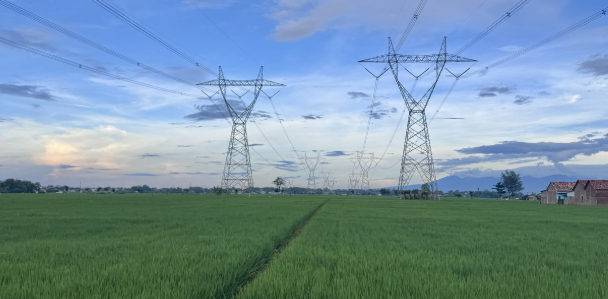
5. What utilities are actually available?
“Available” means the provider SERVES the area and will extend service, at your cost.
Typical extension costs:
- Electric: $15-$30/foot (often $10,000-$40,000 total)
- Well drilling: $15-$30/foot
- Septic: $5,000-$25,000
- Road improvements: $5-$15/foot
Due diligence: Get written quotes during option period.
6. What are property taxes, and can I qualify for ag exemption?
North Texas property taxes vary significantly. With ag exemption, assessed value drops dramatically—saving thousands to tens of thousands annually.
Requirements per Texas Property Tax Code:
- Minimum acreage (usually 10-15 acres)
- 5 of past 7 years in qualified ag use
- Ongoing compliance and documentation
Lose it? Rollback taxes for previous years PLUS substantial interest.
7. What deed restrictions apply?
Deed restrictions are LEGALLY BINDING and can prohibit:
- Commercial businesses
- Livestock beyond certain limits
- Specific building materials
- Multiple structures
Due diligence: Request ALL recorded restrictions before offers. Have attorney review against your plans.
TIER THREE: Strategic Considerations
Zoning, flood zones, and access roads all matter, but they’re negotiable issues, not deal-killers. Research these during option period through county planning departments and FEMA flood maps.
Financing Reality: It’s Harder Than You Think
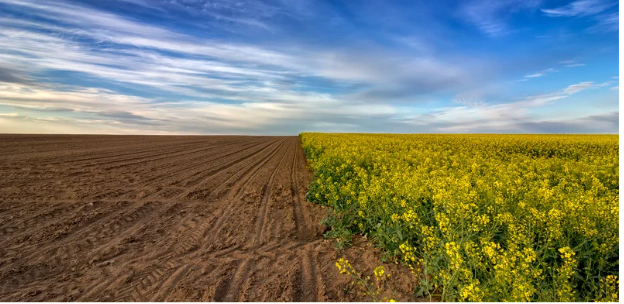
Land is harder to finance than homes. Banks view it as high-risk.
Traditional Land Loans:
- Raw Land: 30-50% down, higher rates, 15-20 year terms
- Unimproved Land: 25-35% down, elevated rates, 20 year terms
- Improved Lots: 20-25% down, better rates, 20-30 year terms
Owner Financing (My Secret Weapon):
Per Texas owner financing practices:
- 5-10% down payment
- Negotiable interest rates
- 5-10 year terms with balloon payment
- Faster closing, flexible credit requirements
Catch: You’ll need to refinance when balloon payment comes due.
Other Options:
- Construction-to-permanent loans (if building immediately)
- USDA and Farm Credit loans for legitimate agricultural operations
Get pre-approved BEFORE shopping. Sellers prioritize buyers with financing arranged.
The Purchase Process (What Actually Happens)

Phase 1: Making the Offer
Texas land uses TREC contract forms:
- Unimproved Property Contract for platted lots
- Farm and Ranch Contract for rural land (most common for larger tracts)
Include: purchase price, earnest money (1-2%), option period (7-14 days), closing date (30-90 days), contingencies.
Sellers care about: proof of funds, reasonable timeline, minimal unusual contingencies, earnest money showing commitment.
Never waive critical due diligence to save option fees.
Phase 2: Option Period (7-14 Days: Move Fast)
Days 1-2: Order survey, perc test, title commitment, well estimates, utility quotes
Days 3-5: Review results, research zoning, investigate water rights, check flood maps, review restrictions
Days 6-8: Review title with attorney, identify issues, get final quotes
Days 9-10: Negotiate, terminate, or proceed
Critical mistakes buyers make:
- Waiting to order tests (results take time)
- Not visiting property multiple times
- Skipping utility quote process
- Not researching neighbors
Use every day of option period.
Phase 3: Financing (Weeks of Waiting)
Lender orders appraisal, reviews documentation, assesses risk.
Pro move: Respond to requests SAME DAY. Every delay pushes closing back.
Phase 4: Closing
Sign deed, promissory note, deed of trust, closing disclosure.
Pay down payment, closing costs (often higher for land due to survey/appraisal), prepaid taxes, title insurance, recording fees.
According to Texas closing procedures, expect costs beyond purchase price.
Post-closing reality: Development costs, ongoing taxes, maintenance, insurance begin.
Agricultural Exemptions: The 50-90% Tax Savings Game

The Numbers:
WITHOUT exemption: Full market value assessment = substantial annual tax
WITH exemption: Agricultural productivity assessment = dramatically reduced tax
Difference: Thousands to tens of thousands saved annually. Six figures over decades.
Qualification per Texas Property Tax Code:
1-D Agricultural Use: Most restrictive, best benefits, 3-year rollback
1-D-1 Open Space Agricultural: More common, 5-year rollback
Wildlife Management: My clients’ favorite, no livestock to manage, requires 3 of 7 approved practices, annual reporting. See a full list of AG exemption types
The 5-Year Rule: You need 5 of past 7 years in qualified ag use.
Can’t just add cows and claim exemption immediately. Strategic workaround: Purchase land with EXISTING exemption and maintain it.
Maintaining the Exemption:
- Continue qualifying activities EVERY YEAR
- Keep detailed records
- File annual reports (wildlife management requires this)
- Prepare for appraisal district inspections
Losing it: Rollback taxes for previous years PLUS interest. I’ve seen $20,000-$40,000 bills.
The 10 Expensive Mistakes (And How to Avoid Them)
1. Trusting old surveys/fence lines → ALWAYS order current survey. Cost of mistake: $30,000-$100,000+
2. Skipping perc test → Make offers contingent on satisfactory results. Cost: Alternative septics $15,000-$50,000
3. Ignoring deed restrictions → Request ALL restrictions before offers. Cost: Plans become impossible
4. Overlooking water rights → Research districts, verify rights in title search. Cost: $15,000-$40,000+ drilling deeper
5. Not verifying access → Confirm DEEDED, RECORDED access. Cost: Landlocked property loses most value
6. Assuming mineral rights transfer → Title search reveals ownership. Cost: Potential drilling on your property
7. Talking to neighbors before closing → Wait until AFTER closing. Cost: Deals fall apart
8. Not budgeting development costs → Get written quotes during option period. Cost: Running out of money mid-development
9. Neglecting environmental due diligence → Research history, check databases. Cost: Hundreds of thousands in cleanup
10. Choosing wrong agent → Choose land specialist with ALC designation. Cost: Missed due diligence, higher service costs
Timeline and Agent Selection
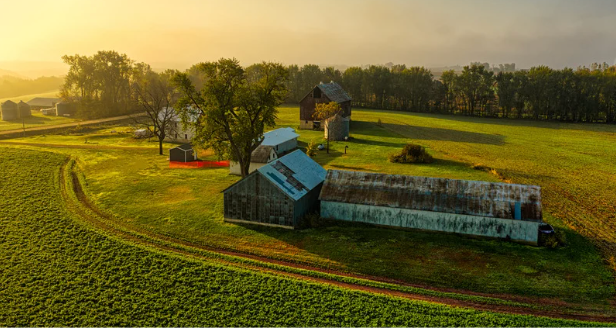
Purchase Timeline:
- Cash: 30-45 days
- Financed: 45-90 days
- Complex: 90+ days
- Owner-financed: 14-30 days
Development from purchase to construction ready: 12-24 months.
Choosing a Land Agent:
Must have:
- Land and rural property specialization
- Deep North Texas market knowledge
- Professional network (surveyors, soil scientists, well drillers, title companies)
- Strong negotiation skills
- ALC designation or equivalent credentials
Interview at least three. Ask about recent transactions similar to yours.
When to Buy (Strategy Over Timing)
Personal readiness matters most:
- Clear purpose and plan
- Financing arranged
- Time for due diligence
- Development budget ready
- Life situation supports commitment
North Texas fundamentals:
- Robust population growth
- DFW metroplex expansion
- Infrastructure improvements
- Economic growth
Long-term trends support values over time, specific timing less critical than finding the right property.
Strategic buyers create timing advantages:
- Identify properties before wide marketing
- Negotiate during slower periods
- Act quickly on opportunities
- Structure mutually beneficial deals
- Maintain flexibility
Bottom line: Best time is when you’ve found the right property, conducted thorough due diligence, negotiated favorable terms, and can afford total investment without strain.
The Bottom Line: Strategic Intelligence Wins

Remember these critical points:
Land purchases are won or lost during due diligence. Invest time and money BEFORE closing to uncover problems.
Total investment matters more than purchase price. “Cheap” property needing $80,000 infrastructure is more expensive than properly-priced improved lot.
Access, water, and soil are deal-breakers. Get these wrong and nothing else matters.
Agricultural exemptions are powerful but not automatic. Save thousands annually, but require legitimate use and compliance.
Restrictions limit what you can do forever. Deed restrictions are legally binding. Know them before buying.
The right professional team protects you from mistakes. Land specialist agent, real estate attorney, experienced lender are worth their fees.
Strategic intelligence separates successful buyers from expensive lessons.
You’re not just buying acreage. You’re acquiring a strategic asset requiring careful evaluation, thorough due diligence, and informed decision-making.
That’s what this guide provides, the intelligence you need to make smart moves in the North Texas land market.
Your Due Diligence Checklist
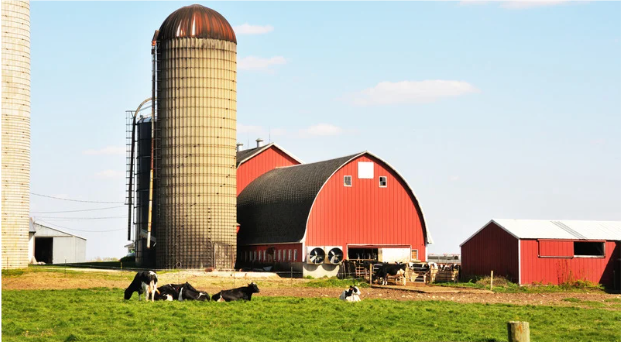
Before Purchase:
☐ Define purpose and confirm zoning matches
☐ Get pre-approved for financing
☐ Select qualified land specialist agent
☐ Visit property multiple times, different conditions
☐ Walk all boundaries
Property Investigation:
☐ Order current survey (less than 10 years old)
☐ Complete perc test if building
☐ Review title commitment thoroughly
☐ Verify mineral rights ownership
☐ Confirm water rights
☐ Check FEMA flood maps
☐ Get utility connection quotes
☐ Review ALL deed restrictions
Regulatory & Financial:
☐ Verify zoning with county
☐ Research building requirements
☐ Investigate septic/TCEQ requirements
☐ Calculate total investment (purchase + development + holding)
☐ Research property tax rates and ag exemption eligibility
☐ Get quotes for well, septic, utilities, roads
Legal Protection:
☐ Hire real estate attorney for contract review
☐ Purchase owner’s title insurance
☐ Confirm all agreements in writing
Closing:
☐ Review Closing Disclosure 3+ days before
☐ Final property walkthrough
☐ Confirm wire instructions with title company
☐ Understand all documents before signing
See a full list of resources for land purchasers and owners with my collection of Guides for Land and Farm/Ranch
About Bobby Franklin: As a land specialist with Legacy Realty Group – Leslie Majors Team serving Ellis County and the greater DFW area, I help buyers navigate rural property purchases with strategic intelligence and market expertise. My approach combines deep local market knowledge with thorough due diligence frameworks that protect clients from expensive mistakes.
For personalized guidance on your North Texas land purchase, contact me at 214-228-0003 or visit northtexasmarketinsider.com for market intelligence and insights.
Disclaimer: This guide provides educational information about purchasing land in North Texas and should not be construed as legal, financial, or investment advice. Real estate laws, regulations, and market conditions change. Always consult with licensed professionals including real estate attorneys, tax advisors, and financial planners before making land purchase decisions. All real estate transactions should be conducted in accordance with applicable federal, state, and local laws and regulations.



